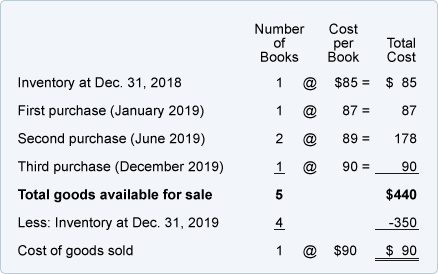The primary responsibility of the Financial Accounting Standards Board is to establish and improve GAAP within the United States. Collectively, they work to improve financial reporting within the U.S. while also enabling and educating stakeholders on reading and understanding the accounting standards. While the FASB mainly focuses on setting standards and rules for accounting professionals in the U.S., the International Accounting Standards Board (IASB) deals with setting standards and rules for international accounting. Due to the global nature of businesses today, the FASB and IASB often cross paths due to overlap in businesses, helping foster cooperation on the issue of improving global accounting standards.
It ensures the proper treatment of accounting principles and financial information so that companies can provide accurate reports to their investors. GAAP allows stakeholders and investors to interpret a company’s financial position and condition through the financial statements, which allow comparisons with other companies and help make informed investment Financial Accounting Standards Board decisions. We undertake various activities to support the consistent application of IFRS Standards, which includes implementation support for recently issued Standards. We do this because the quality of implementation and application of the Standards affects the benefits that investors receive from having a single set of global standards.
Financial Accounting Foundation Appoints Private Company Council Chair and Member [05/12/23]
The Securities and Exchange Commission (SEC) accepts GAAP as the accounting standard when evaluating financial records of companies, non-profits, or the government, and considering it as authoritative (Financial Reporting Release, No. 1 Section 101). Professionals undergo years of education in order to truly understand the already existing principles and accounting standards. However, FASB makes sure to continually educate and update the knowledge and expertise of its accountants and other professionals to uphold its mission and purpose while also enabling transparency. The main difference between the two is that FASB bases its decisions on US financial accounting rules, whereas the International Accounting Standards Board makes its decisions based on international financial accounting principles.

The Financial Accounting Standards Board has the authority to establish and interpret generally accepted accounting principles (GAAP) in the United States for public and private companies and nonprofit organizations. GAAP is a set of standards that companies, nonprofits, and governments should follow when preparing and presenting their financial statements, including any related party transactions. The FASB was formed in 1973 to succeed the Accounting Principles Board and carry on its mission. The FASB is the primary accounting standards-setting body in the United States, while the IASB is the primary accounting standards-setting body for international financial reporting. However, there are still some differences between US GAAP and International Financial Reporting Standards (IFRS).
FASB Mission
The Financial Accounting Standards Board issues new accounting standards on an as-needed basis, depending on the needs of the business and industry. The FASB issues accounting statements, which are used by companies as guidelines when preparing their own financial reports. The Financial Accounting Standards Board (FASB) was created by the Securities Exchange Act of 1934 under instruction from Congress to establish accounting principles that would provide transparency to investors regarding business transactions. Other users of the GAAP accounting standards include, but are not restricted to, creditors, competitors, employees, and regulatory bodies that are evaluating companies. The Financial Accounting Standards Board is a private, non-profit organization created by the Securities and Exchange Commission (SEC).
- The FASB was formed in 1973 to succeed the Accounting Principles Board and carry on its mission.
- Professionals undergo years of education in order to truly understand the already existing principles and accounting standards.
- The purpose of standard accounting principles is to improve reporting for better understanding by the public and others involved in the process of regulating financial information within the U.S.
- Due to the global nature of businesses today, the FASB and IASB often cross paths due to overlap in businesses, helping foster cooperation on the issue of improving global accounting standards.
- In recent years, the FASB has been working with the IASB on an initiative to improve financial reporting and the comparability of financial reports globally.
The articles and research support materials available on this site are educational and are not intended to be investment or tax advice. All such information is provided solely for convenience purposes only and all users thereof should be guided accordingly. FASB is in charge of devising or changing standards that are meant to improve the reliability of financial data by eliminating factors that distort reported information. GAAP refers to the rules and regulations that are the foundation for how companies report financial information. In capital markets, it is necessary for investors to receive information surrounding a company’s profits and losses.
Derivative accounting
A «basic view» version is free, while the more comprehensive «professional view» is available by paid subscription. The FASBs focus is on establishing GAAP while the IASB has a broader responsibility to develop standards that would increase the harmonization of international accounting standards across different countries. The FASB plays a pivotal part in the functioning of several regulatory bodies in the U.S., as accounting standards are important for an efficient market.

It does so by working with various partners in order to determine what should be considered for their statements, education stakeholders, and issue Statements of Financial Accounting Standards (SFASs). Established in 1973, the https://accounting-services.net/contracts/ (FASB) was originally created to step in the shoes of the Accounting Principles Board, which served the same purpose as FASB from 1959 to 1973. The same core content as The IFRS® Accounting Standards – Issued, as well as further explanatory material to help you understand and apply IFRS Standards. Our Standards are developed by our two standard-setting boards, the International Accounting Standards Board (IASB) and International Sustainability Standards Board (ISSB).
Organization
They regularly contribute to top tier financial publications, such as The Wall Street Journal, U.S. News & World Report, Reuters, Morning Star, Yahoo Finance, Bloomberg, Marketwatch, Investopedia, TheStreet.com, Motley Fool, CNBC, and many others. In conclusion, the Financial Accounting Standards Board was created by Congress by passing the Securities Exchange Act of 1934, which allowed the SEC to have full authority over Generally Accepted Accounting Principles. FASB engages with IASB through forums, such as the IASB’s Account Standards Advisory Forum (ASAF), as international perspectives enable FASB to establish and create better GAAP. This is the official edition of the authoritative pronouncements of the International Accounting Standards Board as required at 1 January 2023. We offer a broad range of products and premium services, including print and digital editions of the IFRS Foundation’s major works, and subscription options for all IFRS Accounting Standards and related documents. Every purchase contributes to the independence and funding of the IFRS Foundation and to its mission.
What boards are associated with IFRS?
Our Standards are developed by our two standard-setting boards, the International Accounting Standards Board (IASB) and International Sustainability Standards Board (ISSB).